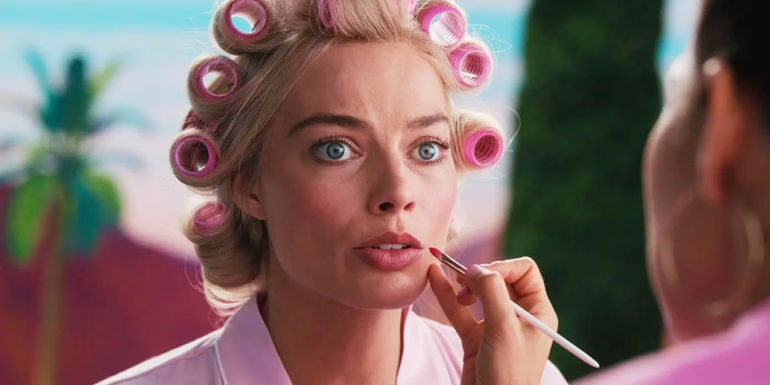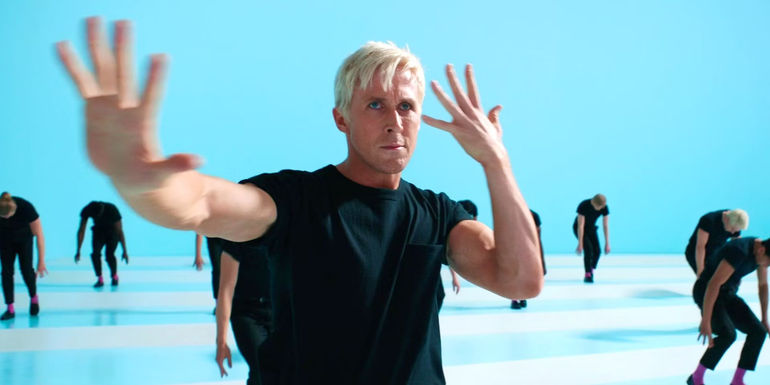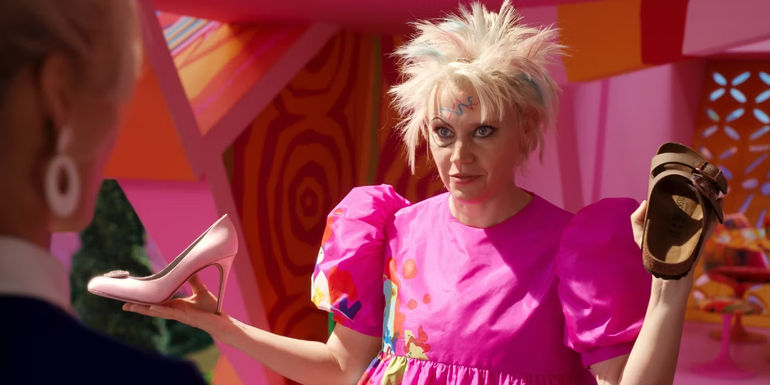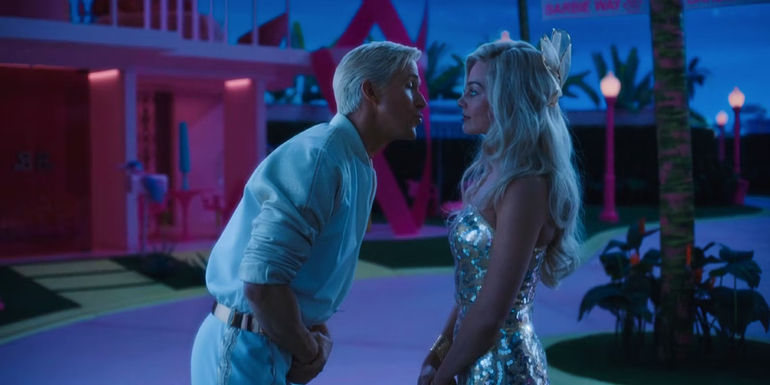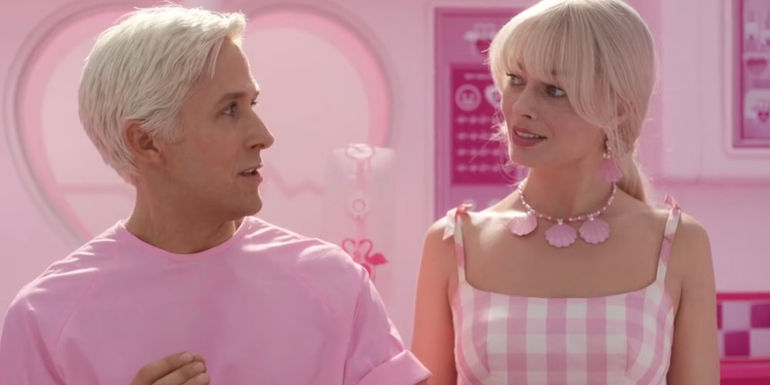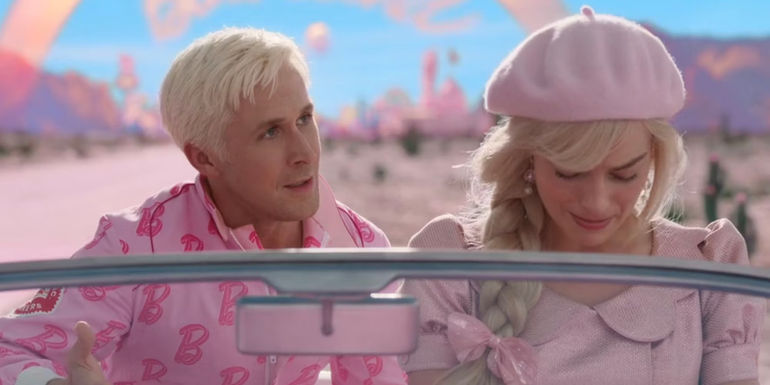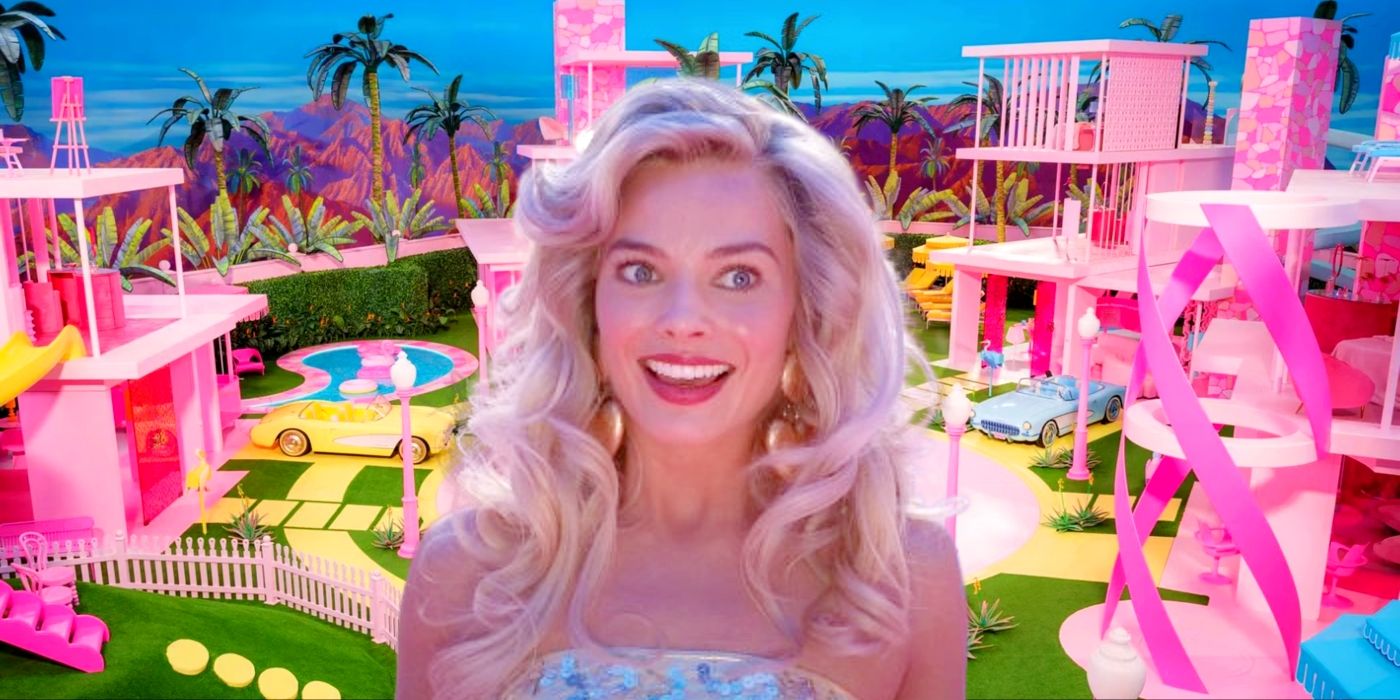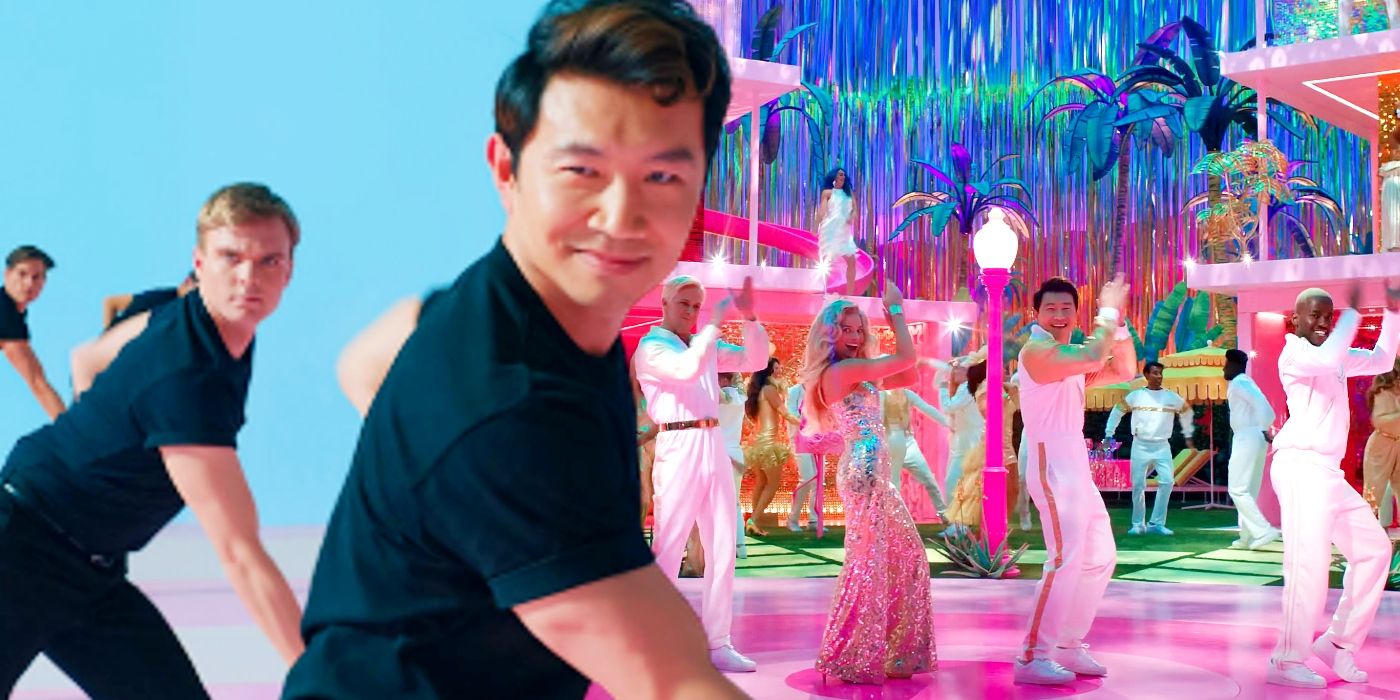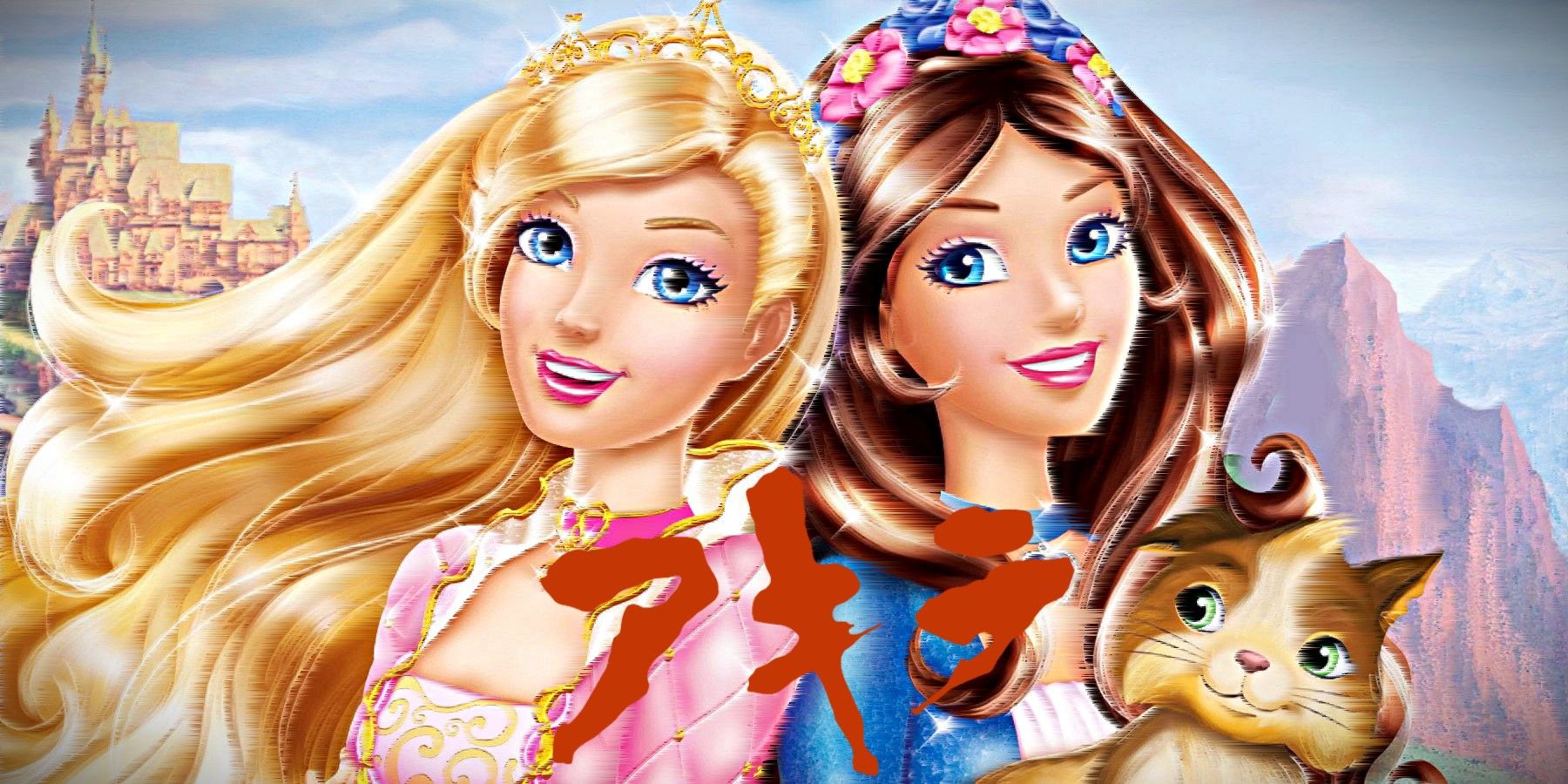
The Marvelous World of Barbie: A Cinematic Triumph

Exploring the impact and misunderstood message of the iconic Barbie movie
Unveiling Barbie's Cinematic Brilliance
In the grand realms of cinematic marvels, one movie stands out as a beacon of creativity and societal introspection: Barbie. Director Greta Gerwig's ambitious endeavor delved into the enigmatic world of the iconic Barbie doll, weaving a narrative that transcended the boundaries of conventional storytelling.
Rock 'Em Sock 'Em Robots and a Magic 8-Ball behind Margot Robbie's Barbie
The movie's profound exploration of gender, consumerism, and societal norms was masterfully interwoven with a delightful blend of humor and poignant introspection. Margot Robbie's portrayal of the Stereotypical Barbie brought a refreshing depth to the character, paving the way for a cinematic experience that resonated with audiences on a profound level.
Barbie (Margot Robbie) and Ken (Ryan Gosling) highfiving each other in their rollerblade outfits in Barbie.
Barbie's journey into the Real World, her encounter with Mattel executives, and her transformative influence on Ken were not just mere plot points; they were profound reflections on the complexities of societal expectations and personal growth. The movie's visual style and witty script brought forth a cinematic triumph that reverberated far beyond the confines of traditional movie narratives.
Barbie (Margot Robbie) getting her makeup done and looking worried in Barbie.
Misguided Industry Response to Barbie's Success
Despite the resounding success and societal impact of Barbie, Hollywood's response to the movie has been marred by fundamental misunderstandings. The industry's eagerness to capitalize on Barbie's triumph through a barrage of toy-based movie announcements reflects a disheartening misinterpretation of the movie's true essence.
Ryan Gosling dancing to I'm Just Ken in Barbie
Barbie's success was not merely a result of its association with a beloved toy; it was a testament to Gerwig's insightful exploration of Barbie's cultural significance and the societal implications of her legacy. The rush to replicate this success with a slew of toy-based movies only serves to dilute the profound message that Barbie so eloquently conveyed.
Weird Barbie (Kate McKinnon) holding two different shoes in either hand in the Barbie movie.
The Oscars' Baffling Oversight
Barbie's unorthodox journey to the Oscars was met with both astonishment and disappointment. While the movie's nomination for Best Picture was a nod to its mainstream appeal, the baffling oversight of Margot Robbie and Greta Gerwig in the acting and directing categories raised poignant questions about the industry's recognition of creative brilliance.
The Kens playing guitar at the Barbies next to individual fires on the beach in Barbie.
The decision to elevate Ryan Gosling's supporting role over the monumental contributions of Robbie and Gerwig serves as a stark reminder of the industry's propensity to undervalue the creative labor of women in cinema. The Oscars' oversight of Barbie's leading talents reflects a broader pattern of inequality that continues to plague the film industry.
Ken (Ryan Gosling) awkwardly leaning in to kiss Barbie (Margot Robbie) after a night out in Barbie.
A Missed Opportunity for Creative Integrity
The contemplation of a Barbie 2 and a potential Ken spinoff reflects a missed opportunity to honor the creative integrity of the original movie. Barbie's self-contained narrative and the transformative arcs of its characters stand as a testament to the importance of preserving artistic purity and depth, rather than succumbing to the allure of commercial spinoffs.
Ken (Ryan Gosling) and Barbie (Margot Robbie) dressed in all pink at the pink doctors' office in Barbie.
The essence of Barbie's message lies in the profound journey of self-discovery and societal introspection, a message that would be dulled and diluted by the prospect of sequels and spinoffs. The industry's failure to recognize this crucial aspect of Barbie's cinematic brilliance is a disheartening oversight that diminishes the potential for meaningful storytelling and creative authenticity.
An all-pink Ken (Ryan Gosling) sits in the back seat while an all-pink Barbie (Margot Robbie) sits in the driver's seat of her car with her head down in Barbie.
A Symbolic Misinterpretation of Barbie's Essence
The release of a tie-in doll, the 'Weird Barbie,' following the movie's success, serves as a symbolic misinterpretation of Barbie's profound message. The decision to promote a standardized and replicated version of a character that embodied unique individuality and creative expression stands as a testament to the industry's failure to grasp the true essence of the movie.
Barbie's cinematic brilliance lay in its celebration of individuality, creativity, and the power of self-expression, a message that was tragically overlooked in the commercial commodification of the 'Weird Barbie' doll. The symbolic misinterpretation of the movie's essence underscores a broader industry trend of prioritizing profit over artistic integrity and societal reflection.
Embracing Barbie's Message Beyond Box Office Triumph
While Hollywood basks in the box office glory of Barbie, the industry's failure to embrace the movie's profound message remains a glaring oversight. Barbie's cinematic brilliance went beyond the confines of commercial success; it delved into the depths of societal introspection, challenging viewers to ponder life beyond consumerism and gender binaries.
The movie's self-aware script and thought-provoking narrative mockingly confronted the industry's reliance on movies as marketing tools, offering a refreshing and cynical take on the societal constructs that govern our lives. Instead of embracing this monumental artistic achievement, Hollywood's response to Barbie reflects a narrow focus on profit, overlooking the transformative societal reflections that the movie so eloquently presented.


